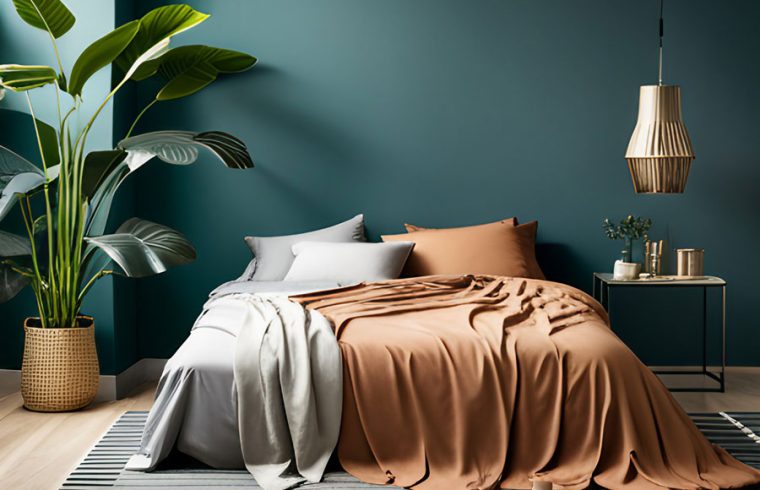In the quest for sustainable living, many individuals are becoming increasingly aware of the choices they make in their homes. One area that often goes overlooked is bedding. The significance of habitat bedding cannot be underestimated, as it plays a crucial role in promoting environmental sustainability, enhancing well-being, and providing comfort. This article will explore the importance of habitat bedding in an eco-conscious home, delving into the benefits, materials, and practices that contribute to a sustainable lifestyle.
Understanding Habitat Bedding
What is Habitat Bedding?
Habitat bedding refers to bedding made from natural, organic, and sustainable materials. Unlike conventional bedding, which may involve synthetic fibers and harmful chemicals, habitat bedding focuses on eco-friendly materials that minimize environmental impact. This includes organic cotton, bamboo, hemp, and wool, among others. By choosing habitat bedding, consumers can make a positive contribution to their health and the environment.
The Importance of Sustainable Materials
One of the key features of habitat bedding is its composition. Traditional bedding often contains materials that are not only detrimental to the environment but can also affect personal health. For example, many synthetic materials release volatile organic compounds (VOCs) into the air, which can lead to indoor air pollution. In contrast, habitat bedding is made from materials that are naturally breathable and hypoallergenic, reducing the risk of allergic reactions and respiratory issues.
The Environmental Impact of Conventional Bedding
The production of conventional bedding involves the use of pesticides, fertilizers, and non-renewable resources. This contributes to soil degradation, water pollution, and a higher carbon footprint. By opting for habitat bedding, consumers can support sustainable agricultural practices that prioritize soil health and biodiversity. Additionally, habitat bedding often uses less water during production compared to conventional materials, making it a more sustainable choice.
Benefits of Habitat Bedding
Health and Comfort
Habitat bedding is designed with the user’s well-being in mind. Organic materials are free from harmful chemicals, providing a healthier sleep environment. This is especially important for those with sensitivities or allergies. Furthermore, the natural fibers in habitat bedding are often more breathable, helping regulate body temperature and improve overall comfort during sleep.
Durability and Longevity
Investing in habitat bedding often means choosing quality over quantity. Sustainable materials tend to be more durable, which means they can withstand regular use without degrading quickly. This longevity not only reduces the need for frequent replacements but also minimizes waste in landfills. By choosing habitat bedding, consumers are making a long-term investment in both their health and the planet.
Supporting Ethical Practices
Many brands that produce habitat bedding prioritize ethical manufacturing practices. This includes fair wages for workers, safe working conditions, and transparency in the supply chain. By purchasing habitat bedding, consumers can support companies that are committed to social responsibility and environmental stewardship.
The Aesthetic Appeal of Habitat Bedding
Beyond its environmental benefits, habitat bedding also offers a variety of styles, colors, and designs that can enhance the aesthetic appeal of any bedroom. From minimalist designs to vibrant patterns, eco-conscious consumers can find options that suit their tastes while remaining true to their values.
Choosing Habitat Bedding: A Guide
When selecting habitat bedding, consider the following factors:
- Material: Look for bedding made from organic cotton, linen, hemp, or bamboo. These materials are not only sustainable but also provide comfort and durability.
- Certification: Seek products certified by recognized organizations, such as the Global Organic Textile Standard (GOTS) or OEKO-TEX. These certifications ensure that the bedding meets strict environmental and safety standards.
- Production Practices: Research the brand’s production methods. Choose companies that prioritize ethical practices, transparency, and sustainability.
- Care Instructions: Habitat bedding often requires specific care to maintain its quality. Familiarize yourself with washing and drying instructions to prolong the lifespan of your bedding.
Frequently Asked Questions (FAQs)
| Question | Answer |
|---|---|
| What is habitat bedding? | Habitat bedding is made from natural and sustainable materials that are eco-friendly and comfortable. |
| Why should I choose habitat bedding? | Choosing habitat bedding supports sustainable practices, enhances health, and provides durability. |
| Is habitat bedding more expensive? | While initial costs may be higher, habitat bedding’s durability makes it a cost-effective investment. |
| How do I care for habitat bedding? | Follow the care instructions on the label, typically involving gentle washing and low-heat drying. |
| Where can I buy habitat bedding? | Habitat bedding can be found at specialty eco-friendly retailers and online marketplaces. |
Conclusion
Incorporating habitat bedding into an eco-conscious home is an essential step towards sustainable living. By choosing bedding made from natural materials, individuals not only enhance their health and comfort but also contribute to the well-being of the planet. As awareness of environmental issues continues to grow, the demand for habitat bedding will likely increase, paving the way for a more sustainable future. By making informed choices, consumers can create a sanctuary that reflects their values and promotes a healthier lifestyle. The impact of habitat bedding extends far beyond the bedroom, making it a vital component of eco-conscious living.
References
- Organic Trade Association. (n.d.). What is Organic?
- Global Organic Textile Standard. (n.d.). GOTS – The Global Organic Textile Standard
- The Good Trade. (2021). The Benefits of Organic Bedding
- Eco Warrior Princess. (2020). Why Sustainable Bedding is Important
- Green America. (n.d.). Why Choose Organic Bedding?


